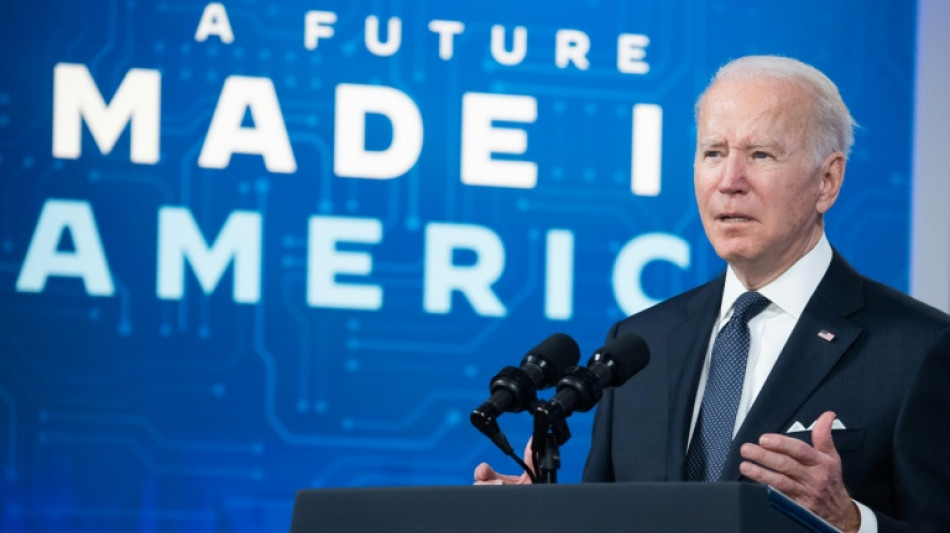
SCS
0.0200

American companies have an average of less than five days worth of semiconductors on hand, a level leaving them vulnerable to production shutdowns if supply is disrupted, the Commerce Department said Tuesday.
The findings from a survey of more than 150 firms last September underscore the precarious situation US companies face amid a global shortage of the crucial computer chips, which has already forced some businesses to slash production and contributed to an ongoing spike in inflation.
President Joe Biden wants to invest $52 billion in domestic semiconductor research and production, but while the US Senate has approved a bill to do so, the House of Representatives has yet to act.
Both chambers are narrowly controled by his Democratic Party. A House Democratic aide confirmed to AFP the chamber's version of the bill is expected to be introduced this week.
"The semiconductor supply chain remains fragile, and it is essential that Congress pass chips funding as soon as possible," Commerce Secretary Gina Raimondo said in a statement.
"With sky-rocketing demand and full utilization of existing manufacturing facilities, it's clear the only solution to solve this crisis in the long-term is to rebuild our domestic manufacturing capabilities."
The survey found chip demand is currently 20 percent higher than its level in 2019 and companies expect more orders than supply for another six months.
Median chip supply has fallen dramatically from its level of 40 days supply in 2019, and the Commerce Department warned "if a Covid outbreak, a natural disaster or political instability disrupts a foreign semiconductor facility for even just a few weeks, it has the potential shut down a manufacturing facility in the US."
The automobile and medical device industries are the sectors most affected by the shortage, the report found.
Disruptions to the auto industry played a role in the surge in used car prices last year, which helped to drive overall consumer prices seven percent higher in 2021.
The inflation spike has become a political liability for Biden, while also spurring the US Federal Reserve to signal it is ready to raise interests rates from zero as soon as March and hike them up to two more times this year to quell prices.
The White House has sought to encourage American businesses to invest in domestic semiconductor facilities, and on Friday Biden praised Intel's plan to spend $20 billion on a new US facility to build the chips.
But production at the company's two plants in the Midwestern state of Ohio will only start by 2025 at the earliest.
C.Masood--DT